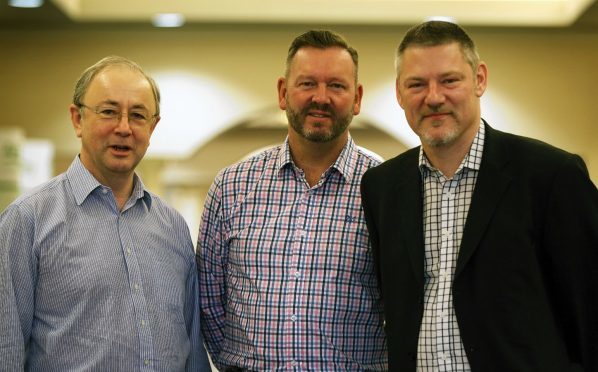Government must ensure adequate resource is put in place to negotiate new and safeguard existing trade deals following Brexit.
That was the message from farmer levy body AHDB’s head of exports Peter Hardwick.
Speaking at a seed potato industry event in St Andrews, Mr Hardwick said ironing out the details of future trade agreements following Brexit would take time and in some cases “transitional arrangements” would be needed.
He said: “The majority of our seed exports go to non-EU destinations, however many of these non-EU exports are founded on EU trade agreements of one form or another.”
Exports to Egypt, for example, which is one of the key markets for UK seed potatoes, was based on an EU section agreement which has been in place for the past 15 years.
Mr Hardwick said: “When we leave the EU we cease to be part of that agreement.”
He said AHDB had been actively talking to government about the implications of losing these trade agreements and a great deal of effort would be required to defend the sector’s interests. Seed potato exports are worth an estimated £150million to the UK economy every year, with the majority grown in Scotland.
“It is do-able and I don’t see a doomsday scenario, but it is going to need resourcing and AHDB is going to be involved,” added Mr Hardwick.
AHDB Potatoes head of crops export market development, Robert Burns, said the industry was on track for record exports this year.
He said crops were “pretty seedy” and exports had already begun to Egypt and the Canaries.
The levy body’s strategy director, Rob Clayton, said AHDB would shortly be consulting on how it plans to spend its levy income over the next few years.
Proposals include providing more resource to understand Brexit, and focusing trade development work on exporting product into new markets, rather than simply opening up those markets.
On recent reports of high-risk English and European seed being brought into Scotland, Mr Clayton said industry needed to remember that “reputation was precious” and growers had a “collective responsibility” to maintain the high-health status of the Scottish seed sector.
